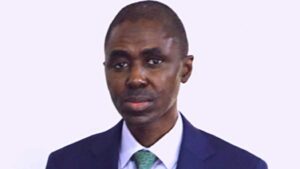


Customs slashes cargo clearance exchange rate by 1.2% amid Naira appreciation
The Nigeria Customs Service has responded to the recent appreciation and stabilisation of the naira at the official foreign exchange (FX) market by further reducing the foreign exchange rate used for computing import duties.
On Monday, March 18, the Central Bank of Nigeria (CBN) slashed the exchange rate by 1.2 percent compared to the previous rate.
As a result, the Customs FX duty rate was revised downward from N1,612.281/$ to N1,593.41/$, as confirmed by information sourced from the official trade portal of the Nigeria Customs.
This adjustment represents a 1.2 percent reduction from the old rate and translates to a decrease of N18.871 on each dollar required to clear goods from the port.
Data obtained from the FMDQ’s Nigerian Autonomous Foreign Exchange Rate Fixing (NAFEX) revealed that the naira-to-dollar exchange rate commenced at N1,602.43/$ and concluded at N1,602.75/$ on March 15. The positive performance of the naira against the dollar was observed across both official and parallel markets at the end of the previous week.
In light of these developments, importers opening Form M for importation on Monday, March 18, stand to benefit from a slight relief in import duty payments compared to those who initiated the process last Friday.
This adjustment aligns with the recent directive from the apex bank instructing Customs to utilise the exchange rate prevailing on the date of Form M submission for calculating import duties.
The revision in the Customs FX duty rate reflects ongoing efforts to mitigate the financial burden on importers and foster a conducive trading environment amidst fluctuations in the foreign exchange market.
Meanwhile, in a statement by its Director, Muda Yusuf, the Centre for the Promotion of Private Enterprise has urged the apex bank to peg the customs exchange rate at N1,000 per USD to halt recurring rate changes.



